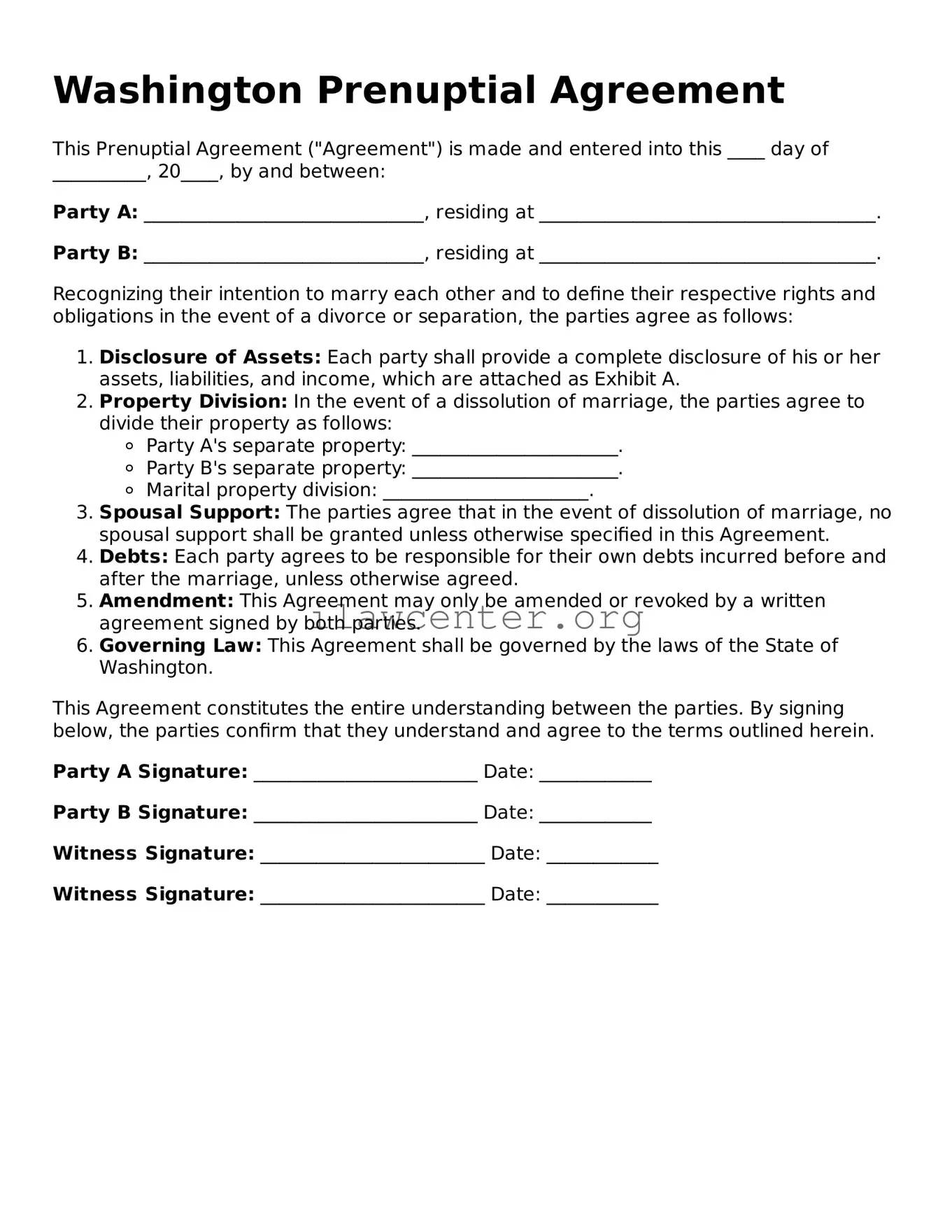Instructions on Utilizing Washington Prenuptial Agreement
When preparing to fill out the Washington Prenuptial Agreement form, it's important to ensure both parties understand how to complete each section clearly and accurately. This document serves as a framework for both individuals before they marry, so it’s crucial to approach this collaboratively and thoughtfully.
- Start by gathering necessary information about both parties. This includes full names, addresses, dates of birth, and other personal details.
- Clearly state the date of the agreement. This should reflect the day the document is completed.
- List each person’s separate property. Be specific about what belongs to whom, including bank accounts, property, and any other assets.
- Outline any joint property. Detail what will be acquired together after marriage, such as homes or investments.
- Discuss and write down any financial responsibilities or debts each party brings to the marriage. This includes individual or joint debts.
- Include any expectations regarding spousal support or alimony in case of separation or divorce. This helps set clear agreements upfront.
- Leave space for signatures. Both parties will need to sign and date the document, showing mutual agreement.
- Consider having the agreement notarized. This adds an extra layer of authenticity to the document.
Once both individuals have completed the form to their satisfaction, review it carefully to ensure all information is accurate and complete. This will help prevent any misunderstandings in the future.
